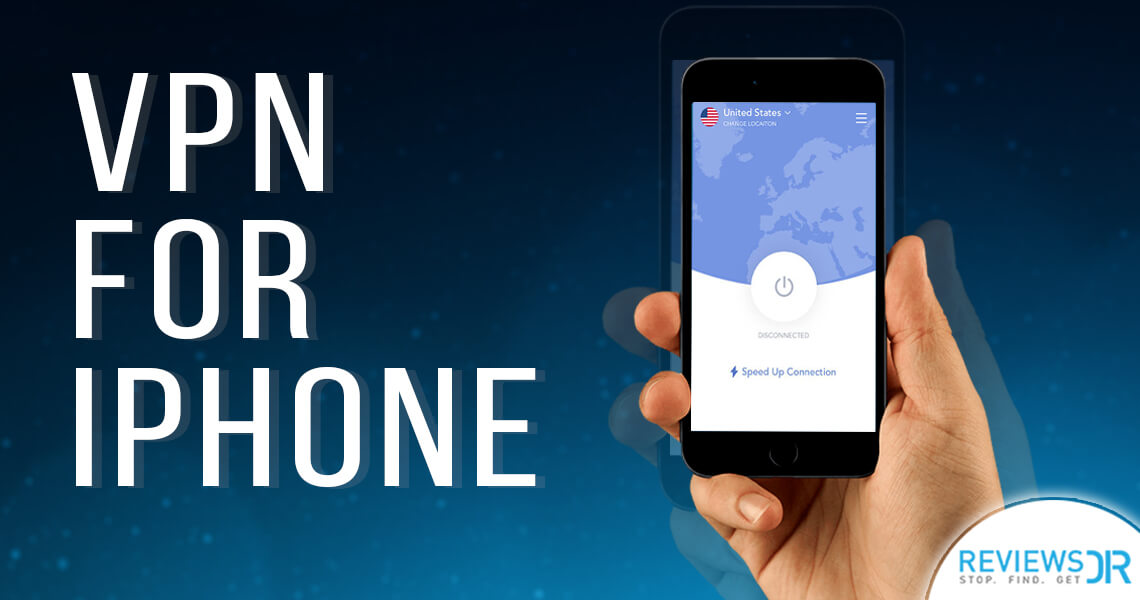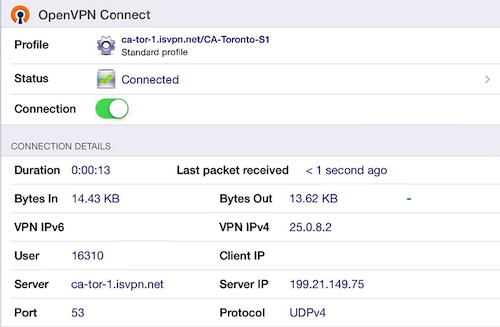

Its protocol is very secure, making it a safer choice. This type of tunnelling doesn’t use fixed ports, so can easily pass through firewalls.
#Best vpn for ios 2015 windows#
Secure Socket Tunnelling Protocol (SSTP) is unusual because it is only available on Windows operating systems. Additionally, L2TP/IPSec used fixed ports, meaning it sometimes get blocked by firewalls. The downside? This type of tunnelling protocol, because of the two layers of encryption, can result in slower online connection speeds. L2TP and IPSec portions of this protocol create their encryption, resulting in two layers of safety. This protocol offers two stages of protection - explaining its name. Layer 2 Tunnelling Protocol (L2TP), combined with Internet Protocol Security (IPSec), provides slightly stronger protection. This form is ‘dated’ for a reason therefore, stronger levels of protection are encouraged. The data encryption is weakened alongside its lightning-fast speed, meaning it is much easier for external parties to prey on your details. It may be incredibly fast, but this is at the expense of strength and protection. Point to Point Tunnelling Protocol (PPTP) is a dated version, that is still in use today. It is imperative to choose a VPN provider that use adopts the most robust tunnelling protocol possible. Outdated protocols may provide weaker data encryption, reducing your defence against internet spies. The type of tunnelling protocol your VPN provider uses determines the strength of the tunnel. Not all VPN tunnels are equally effective in protecting your online privacy. Hiding your IP address and encrypting the data you send and receive is a powerful combination to help keep your online browsing sessions private. When you enable this added layer of protection, businesses, governments, or even hackers, won't be able to track your online activity. When your data is encrypted, it is scrambled, preventing external bodies from interpreting and deciphering it. That’s why you need a VPN provider that takes further measures to encrypt the data you send and receive while you are online. Using a VPN alone may not be enough to protect your online privacy. Figuratively, your VPN provider has built a tunnel around your online activity, providing a barrier between it and everyone else.

#Best vpn for ios 2015 download#
Put simply, when you click on links or download files from a site, no one will be able to see this activity.

Instead, they'll see the IP address of your VPN provider, helping to protect your privacy. When you then start searching online, the websites you visit and your internet service provider - ISP, for short - won't see your IP address. The VPN is the key to hiding your IP address and hiding your information from predators.īefore visiting websites, you'll log into your VPN provider’s service. To connect to the internet through a VPN tunnel, you'll first have to sign up with a virtual private network service, better known as a VPN. Using one is highly recommended when you’re logging onto the internet using public Wi-Fi at hotels, coffee shop, or library. A VPN acts similar to a shield, protecting you from harms way. This means without a VPN, businesses, government bodies, or even hackers, have access to your personal information and browsing activity.ĭon’t fret if you are prepared, you can maintain your safety. Whether you are using your smartphone, laptop, computer, or tablet, your online activity can easily be tracked by potential threats. Much like your home address, an IP address identifies your location while online. In 2015, CNET reported that around 16 per cent of Australians were using a VPN to protect their privacy online 1.Ī VPN tunnel allows for your IP address to be hidden and encrypts all data you generate while using the web. A Virtual Private Network (VPN) tunnel is an encrypted link between your computer or mobile device and an outside network.


 0 kommentar(er)
0 kommentar(er)
